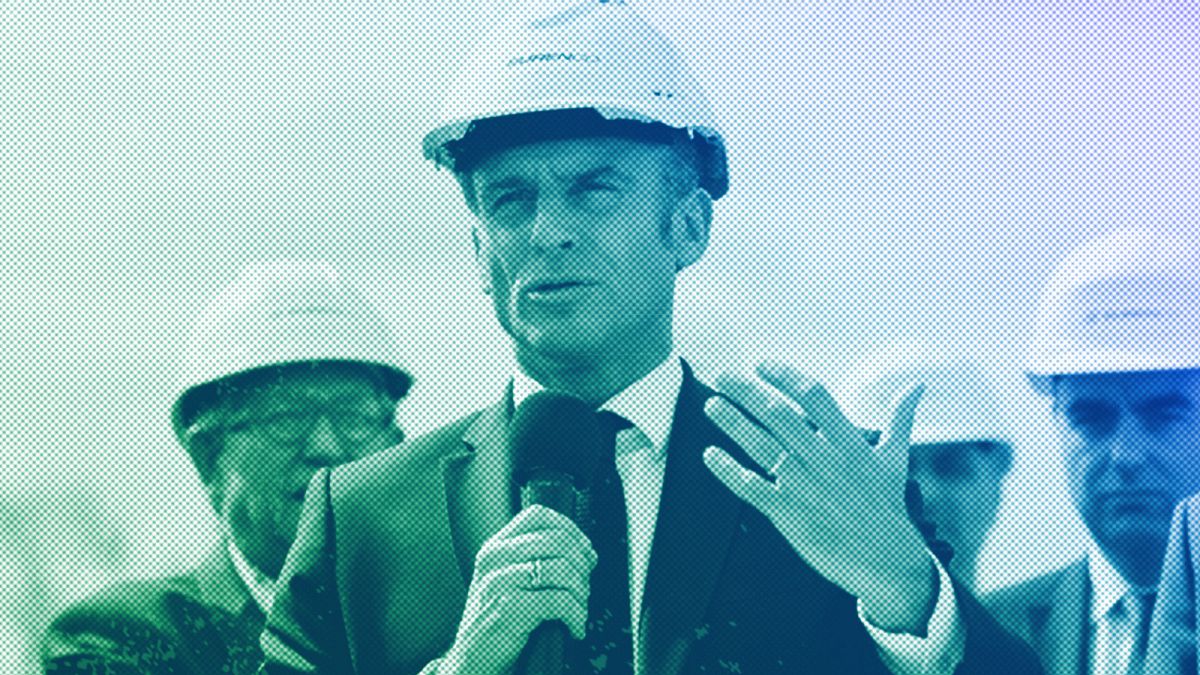Macron’s deficit dilemma depends on sound tax policy

Recent figures reveal that President Emmanuel Macron’s deficit reduction plan is behind target, meaning France must find additional revenue or face further fiscal uncertainty.
Trapped in a stalemate between raising taxes or cutting spending, France instead should consider the revenue potential of principled tax policy design.
On 26 March, the French National Institute of Statistics and Economic Studies announced France’s 2023 budget deficit was 5.5% of GDP, well above both the government’s 4.9% target and the EU’s 3% rate.
The €16 billion gap is economically significant for any government, but especially for France with its 110.6% debt-to-GDP ratio and costly political goals, including driving the Green Deal, supporting Ukraine, and reviving the European defence industry.
For Macron, this issue challenges his consecutive election pledges to restore French competitiveness and economic growth, rather than continuing the status quo of raising taxes to plug budgetary holes.
Compounded by the hostile social climate that has emerged from protest movements, even Macron supporters are now questioning their trust in France’s economic growth.
Worse still, France’s sceptical European partners who wish to revive the European defence industry or aid Ukraine may abandon their investments if stakeholders believe France cannot foot its share of the bill.
You can’t design the tax system just to gain political points
To move forward, Finance Minister Bruno Le Maire has called for cuts to public spending and, though initially ruled out increasing taxes, later clarified that this promise didn’t necessarily extend to “superprofits”.
Another option policymakers have floated is to extend “la Crim” on energy company profits, even though it has only raised €600 million of an estimated €12bn in revenue.
Unfortunately, this trend of designing tax policies based on political popularity, not sound tax principles, is not new to French policymakers.
According to Tax Foundation’s 2023 International Tax Competitiveness Index, France’s tax system ranks 36th out of 38 OECD countries.
This is despite the president’s earlier reforms to make the tax system more competitive by gradually reducing the statutory corporate income tax rate from 33.3% to 25.83%, cutting personal income taxes, simplifying contributions to the social security system, and implementing various property tax reforms.
The poor ranking shows that significant complexity, multiple tax base issues, and economically distortive policies still exist throughout France’s tax system.
For example, temporary windfall profits taxes like la Crim have unsound tax bases and historically lead to investor uncertainty, reduced investment, and lower-than-expected government revenue.
Additionally, the French value-added tax (VAT) system only covers 53% of final consumption, which is significantly lower than the OECD average of 58%.
It’s not too late to fix this, and the means to do so exist
However, not all hope is lost for French policymakers working to solve the dilemma between raising more revenue and maintaining economic growth.
France’s problem is not the lack of profitable economic activity to tax; it’s the tax system’s inefficiency. That’s good news: it means French policymakers have the power to improve the situation.
At €73bn, France has the largest VAT actionable policy gap in the EU, which is a measure of lost revenue due to policy choices, such as reduced rates on certain goods or even exemptions. Because this forfeited revenue is policy-related, new policies that broaden the tax base can recapture its profitability.
Furthermore, smoothing marginal tax rate variation over income levels can increase labour supply and foster upward mobility.
Additionally, eliminating regressive production taxes on businesses would increase their competitiveness and growth potential. These policy changes would also help reduce France’s tax burden on workers, which is one of the highest in the OECD at 47%.
It doesn’t have to be all-or-nothing
French society is fundamentally debating the merits of economic growth, how to improve the effectiveness of public spending, and the meaning of tax fairness.
It doesn’t have to be an all-or-nothing game; citizens and policymakers should recognize that reform is more complicated than punishing the rich or vilifying the poor.
Stabilizing public finances over the long term will require a tax policy that raises revenue efficiently, which is accomplished by principled proposals, not politically convenient shortcuts that lead to future disappointment.
Sean Bray is Director of European Policy at Tax Foundation Europe, where he researches international tax issues with a focus on tax policy in Europe.
At Euronews, we believe all views matter. Contact us at view@euronews.com to send pitches or submissions and be part of the conversation.







